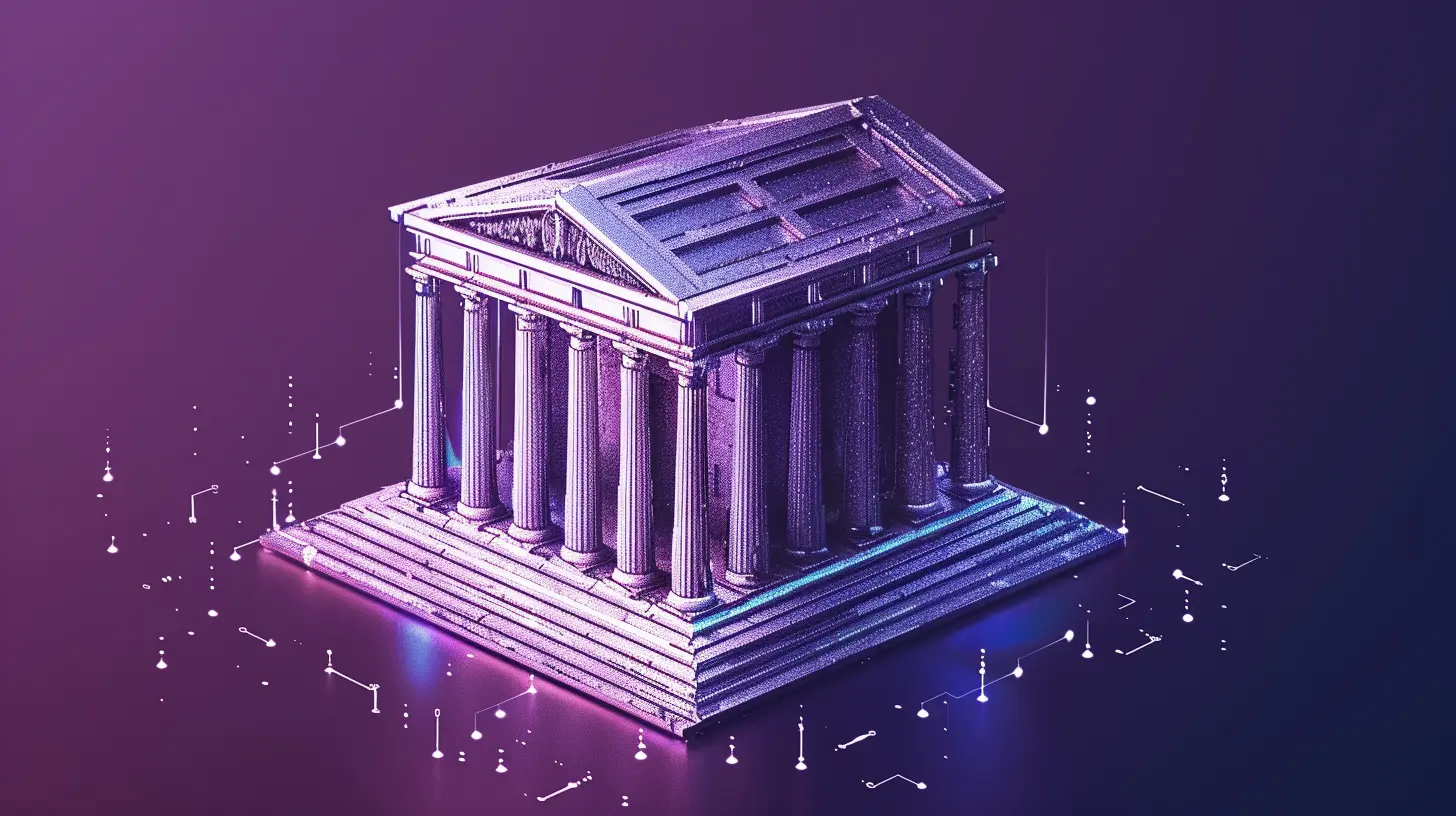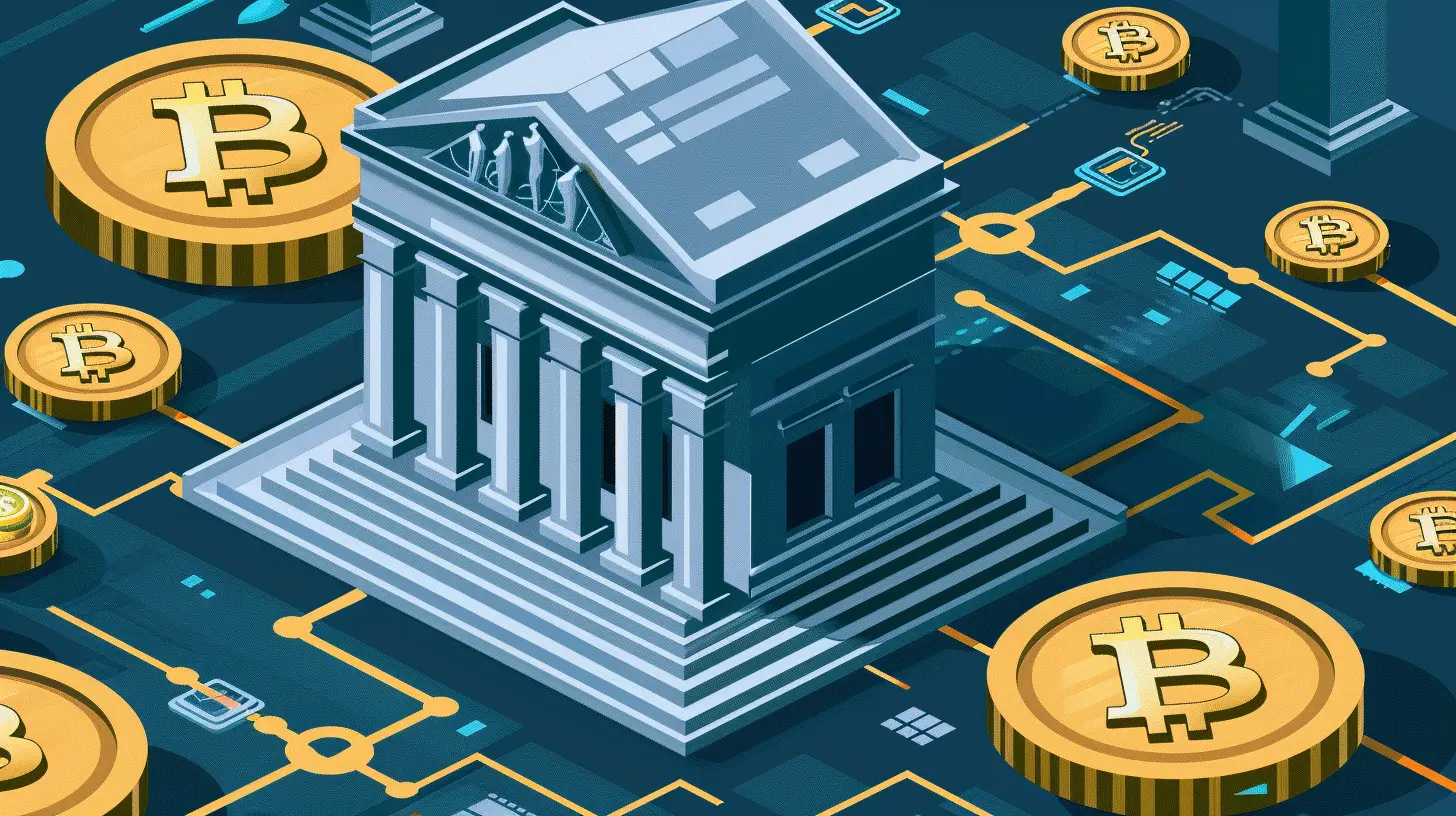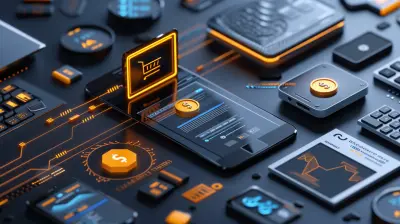How Blockchain is Democratizing Access to Financial Services
13 October 2025
The world of finance has always been a game of exclusivity. Banks, lenders, and investment firms have traditionally operated within a tightly controlled system, leaving billions of people without access to essential financial services. But what if there was a way to bypass these gatekeepers? Enter blockchain—a revolutionary technology that's shaking up the financial industry and making money management accessible to everyone, not just the privileged few. 
Understanding Financial Exclusion
Before we dive into how blockchain is democratizing financial services, let's talk about financial exclusion.Did you know that over 1.4 billion adults worldwide are unbanked? That means no access to a savings account, credit, or even basic financial tools. For many, the barriers are high—strict identification requirements, hefty fees, geographical limitations, and an overall lack of trust in traditional banking institutions.
For those living in developing countries, financial exclusion is even more severe. Limited access to brick-and-mortar banks, lack of financial literacy, and unstable economic conditions further hinder people from participating in the global economy.
This is where blockchain technology steps in as a game-changer. 
What is Blockchain, and Why Does it Matter?
At its core, blockchain is a decentralized ledger that records transactions transparently and securely. Unlike traditional banks that rely on centralized authorities, blockchain runs on a distributed network of computers.Think of it like this: Instead of keeping all your money in one bank, imagine a giant, fraud-proof spreadsheet that's duplicated across millions of computers. Every transaction is recorded in this spreadsheet, and once it's verified, it becomes nearly impossible to alter or manipulate.
So, why does this matter for financial inclusion?
Blockchain removes middlemen (banks, brokers, and regulators), reduces costs, enhances security, and—most importantly—allows anyone with an internet connection to access financial services.
Now, let's explore how blockchain is making financial freedom a reality. 
1. Banking the Unbanked
Traditional banks require identity verification, legal documents, and often a minimum deposit to open an account. For many in developing nations, these requirements are simply unattainable.But with blockchain-based financial platforms, all you need is a smartphone and an internet connection.
- Decentralized finance (DeFi) applications allow anyone to save, borrow, and invest without needing a traditional bank.
- Cryptocurrency wallets act as digital bank accounts, letting users send, receive, and store funds securely.
- Some blockchain platforms utilize biometric verification, enabling access without requiring extensive paperwork.
This means that even those without an official government-issued ID can participate in the financial system and secure their assets. 
2. Lowering Transaction Costs
Ever sent money internationally and got hit with outrageous fees? Yep, traditional financial institutions make a killing off remittances, charging an average of 6% per transaction.Blockchain technology can slash these costs significantly.
- Cryptocurrencies like Bitcoin and Ethereum allow users to send money across borders with little to no fees.
- Stablecoins pegged to fiat currencies make transactions faster and more predictable.
- No more middlemen like Western Union or PayPal—just peer-to-peer transactions with low fees.
For millions of migrant workers sending money home, this is a game-changing opportunity to keep more of their hard-earned cash.
3. Financial Transparency and Security
One of the biggest reasons people avoid traditional banking is mistrust. From corrupt governments to exploitative banks, financial fraud is rampant worldwide.Blockchain solves this by offering unparalleled transparency.
- Every transaction is publicly recorded and permanently stored on the blockchain.
- There's no central authority that can manipulate or erase records.
- Smart contracts automatically execute transactions when conditions are met, reducing fraud and eliminating the need for intermediaries.
This trustless system ensures that no single entity can control or manipulate financial data, making it a powerful tool against corruption.
4. Democratizing Loans and Credit
Access to credit has always been rigged in favor of the wealthy. Banks require credit scores, collateral, and high-interest rates, making loans inaccessible to many.Enter DeFi lending platforms, which allow users to borrow without a bank.
- Users can stake cryptocurrency as collateral and borrow against it.
- Smart contracts eliminate the need for intermediaries, reducing bias and ensuring fair transactions.
- Interest rates are often lower than traditional bank loans.
This gives small business owners, farmers, and entrepreneurs the financial backing they need to grow—without relying on slow-moving banks filled with red tape.
5. Enabling Micropayments and Gig Economy Growth
The gig economy is booming, but traditional financial systems make it hard for freelancers and small businesses to get paid efficiently.Blockchain opens up a world of possibilities:
- Micropayments allow workers to receive instant compensation without dealing with high fees.
- Smart contracts ensure payment is released only when the job is completed, reducing disputes.
- Platforms like Bitcoin’s Lightning Network enable near-instant transactions, perfect for small daily trades.
For freelancers, artists, and content creators, this means more financial freedom and not having to wait weeks to receive payments.
6. Protecting Wealth in Economically Unstable Countries
In countries facing hyperinflation or economic instability, citizens often struggle to retain the value of their money. Imagine waking up to find your hard-earned savings worthless overnight.Blockchain provides a lifeline in such situations:
- Cryptocurrencies act as a store of value, protecting against inflation.
- Stablecoins provide a stable alternative to volatile local currencies.
- Decentralized savings accounts help people preserve and grow wealth even when their national economy collapses.
For those in politically unstable regions, holding wealth in digital assets is often safer than keeping cash in a bank.
Challenges and Roadblocks
Blockchain isn’t a magical fix—it comes with its own set of challenges:- Regulatory uncertainty: Many governments are still trying to figure out how to regulate blockchain technology.
- Scalability issues: Some blockchain networks struggle with high transaction volumes, causing delays and high fees.
- Lack of awareness: Many people, especially in developing countries, are unaware of how blockchain works or how to use it.
However, as the technology evolves and adoption grows, these hurdles will likely become less of a problem.
The Future of Blockchain in Finance
Blockchain has already proven to be a force for financial inclusion, but we’re just scratching the surface. The future is even more promising:- Increased adoption of DeFi platforms, making financial services even more accessible.
- More government-backed digital currencies, offering secure alternatives to cash.
- Advanced security features, ensuring greater protection against fraud and cyber threats.
As more people embrace decentralized finance, the dream of a truly inclusive financial system becomes more of a reality.
Final Thoughts
Blockchain is tearing down long-standing financial barriers and putting power back in the hands of the people. Whether it’s banking the unbanked, lowering transaction costs, enabling fair lending, or protecting wealth—this technology is redefining who gets to participate in the financial system.While challenges remain, the potential of blockchain to reshape the global economy is undeniable. If there’s one thing we can be sure of, it’s that financial freedom is no longer just for the privileged—it’s for everyone.
all images in this post were generated using AI tools
Category:
Blockchain TechnologyAuthor:

Reese McQuillan
Discussion
rate this article
1 comments
Paxton Wheeler
Great article! It's exciting to see how blockchain is opening doors for everyone, making financial services more accessible and equitable.
October 14, 2025 at 10:58 AM

Reese McQuillan
Thank you! I'm glad you found the article insightful. Blockchain truly is a game-changer for financial accessibility!


